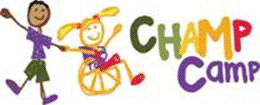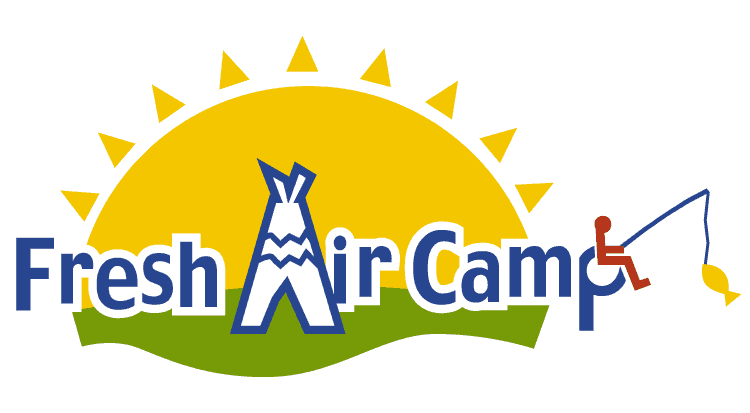IVUN
INTERNATIONAL VENTILATOR USERS NETWORK
an affiliate of Post-Polio Health International
CONNECTING
VENTILATOR USERS,
HEALTH PROFESSIONALS,
AND INDUSTRY
IVUN
INTERNATIONAL VENTILATOR USERS NETWORK
an affiliate of Post-Polio Health International
VENTILATOR-ASSISTED LIVING
VOLUME 36, NUMBER 1
FEBRUARY 2022

Debra Weese-Mayer, MD
This year's Margaret Pfrommer Endowed Memorial Lecture in Home-Based Mechanical Ventilation was awarded to Debra Weese-Mayer, MD, Beatrice Cummings Mayer Professor in Pediatric Autonomic Medicine at Northwestern University Feinberg School of Medicine and Chief of the first Center for Autonomic Medicine in Pediatrics (CAMP) at Lurie Children’s Hospital. The lecture was presented on October 18th at CHEST 2021. This was the 22nd year the lecture was given at the annual meeting of pulmonologists to educate physicians about home mechanical ventilation (HMV)..........................MORE
CONNECTING
VENTILATOR USERS,
HEALTH PROFESSIONALS,
AND INDUSTRY
IVUN’s 9th Research Award: Final Report
IVUN is pleased to present the final report from The Research Fund's 9th Grant, awarded in 2016 to Louise Rose, RN, BN, MN, PhD, King’s College London and Mika Nonoyama, RRT, PhD, University of Ontario Institute of Technology. The study looked at cough assist use in Ontario, Canada...............................MORE
ADDITIONAL SECTIONS
Advocacy
Educate, discuss, take action
Camps for Ventilator-Assisted Children 2022
Latest information on summer vent camps
Recent Relevant Publications
Summaries, links to selected professional, disability, disease journals and newsletters
Educational Opportunities
Conferences and webinars for health professionals and ventilator users
Ventilator-Assisted Living
Vol. 36, No. 1, February 2022
Editor: Brian Tiburzi
Designer: Brian Tiburzi
ISSN 1066-534X
© 2022 Post-Polio Health International.
Permission to reprint must be obtained from Post-Polio Health International (PHI) at info@post-polio.org.
Ventilator users, health professionals, non-profits, company representatives – send comments and updates to info@ventusers.org.
Artificial Ventilation, A True Lifesaver for Children With CCHS and ROHHAD
The 2020 Margaret Pfrommer Endowed Memorial Lecture in Home-Based Mechanical Ventilation
Debra Weese-Mayer, MD
This year's Margaret Pfrommer Endowed Memorial Lecture in Home-Based Mechanical Ventilation was awarded to Debra Weese-Mayer, MD, Beatrice Cummings Mayer Professor in Pediatric Autonomic Medicine at Northwestern University Feinberg School of Medicine and Chief of the first Center for Autonomic Medicine in Pediatrics (CAMP) at Lurie Children’s Hospital. The lecture was presented on October 18th at CHEST 2021. This was the 22nd year the lecture was given at the annual meeting of pulmonologists to educate physicians about home mechanical ventilation (HMV).
Established in 1999 by Dr. Allen Goldberg and Dr. Eveline Faure, the lecture honors polio survivor and advocate Margaret Pfrommer from Chicago, Illinois. Pfrommer, a quadriplegic from polio, spent part of her life in a nursing home after her mother’s death. This experience compelled her to become an advocate for herself and for all those with significant disabilities. The purpose of the endowment is to honor an individual who possesses superior knowledge of home-based mechanical ventilation and who promotes the health professional/patient partnership.

Debra Weese-Mayer, MD
Past Awardees of the Margaret Pfrommer Endowed Memorial Lecture in Home-Based Mechanical Ventilation
1999
2000
2001
2002
2003
2004
2005
2006
2007
2008
2009
2010
2011
2012
2013
2014
2015
2016
2017
2018
2019
2020
Dominique Robert, MD
Colin Sullivan, BScMed, MB, BS, PhD, FRA PhD, FRACP, FAA
Augusta Alba, MD
Joseph Ramsdell, MD, FCCP
Anita Simonds, MD, FRCP
John Downes, MD, FCCP
Barry Make, MD, FCCP
Allen Goldberg, MD, FCCP
Dudley Childress, MD
Joshua Benditt, MD, FCCP
Nicholas Hill, MD, FCCP
Barbara Rogers
Not awarded
Norma Braun, MD, FCCP
Roger Goldstein, MD, FCCP
Judith Fischer, MSLS, and Joan L. Headley, MS
John R. Bach, MD, FCCP
Thomas G. Keens, MD
Audrey J. King, MA
Douglas McKim, MD, FCCP
Howard Panitch, MD, FCCP
Peter C. Gay, MD, MS, FCCP
Cough Assist: User Education Needs, Health Service Utilization, and Outcomes
IVUN’s 9th Research Award: Final Report
Louise Rose, RN, BN, MN, PhD, King’s College London
Mika Nonoyama, RRT, PhD, University of Ontario Institute of Technology

Louise Rose, RN, BN, MN, PhD
BACKGROUND
Individuals that require ventilator support in the home due to neuromuscular disorders experience frequent chest infections. When severe, this results in emergency department visits and, in some cases, hospital admission.
Cough assist devices that help clear respiratory secretions may help prevent chest infections or lessen their severity. This may help reduce use of healthcare services and associated costs, as well as reducing symptom burden and improving quality of life.
In April 2014, the Ministry of Health and Long-term Care in the province of Ontario, Canada, set up a publicly funded program to provide free-of-charge cough assist devices and associated equipment based on a home ventilation specialist prescription.
PROJECT AIM
Our project was designed to understand the following:
(1) What education and support is required for cough assist users and their families when newly started and for ongoing use of a cough assist device.
(2) The impact on publicly funded healthcare services and costs, health-related quality of life and symptom burden.
METHODS
We conducted this study in three parts.
In Part 1, we conducted interviews with new (<6 months) and established (6–48 months) cough assist users and family caregivers. We also asked them to rate their confidence using cough assist on a 1 (not confident) to 10 (very confident) rating scale.
In Part 2, we prospectively recruited participants who received a cough assist device through the publicly funded scheme. We then used the Ontario health administrative databases to understand the publicly funded healthcare service use and costs of these participants in the 12 months before using cough assist and in the first 12 months of use.
In Part 3, we assessed health-related quality of life and self-reported breathlessness at three, six and nine months. We also collected a broader understanding of both public and private healthcare costs using participant-reported data as opposed to health administrative databases.

Mika Nonoyama, RRT, PhD
FINDINGS
Part 1: We conducted 28 interviews, including 14 new and 14 established cough assist users and caregivers. Both new and established users were highly confident in use of cough assist, with average scores of 8.8 and 8.3 respectively. Overall, interview participants were satisfied with their initial education which generally comprised a 1–2-hour one-on-one session at home or in clinic with device demonstration and hands-on practice. They viewed hands-on practice and teaching of caregivers as more beneficial than written materials.
Participants reported ongoing support for cough assist use was variable. Most indicated a lack of specific follow-up resulting in uncertainty if they were using cough assist correctly, or if it was effective.
Things that made interview participants more likely to use cough assist were that it was easy use, the initial training, support from formal/informal caregivers, and that they experienced symptom relief. Barriers to use were inadequate education on why cough assist was needed, technique and benefit, lack of follow-up, and inadequate knowledge of cough assist by community/non-specialist providers.
Part 2: We recruited 106 adults and children using a cough assist device. We found no difference in emergency department visit or hospital admission rates in the 12 months before and 12 months after receiving a cough assist device. However fewer days were spent in hospital (P=0.03). We also found the number of physician specialist visits decreased from seven to four visits on average (P<0.0001). Conversely, the use of homecare nursing and homemaking/ personal support visits increased.
We found that the difference in healthcare costs before and after commencing cough assist differed.
For most (59%) participants these were lower, for 13% they were not different, and for 27% they were higher. The most important predictor of costs after cough assist approval was the healthcare costs in the 12 months before receiving a device. At 12 months, 23 (22%) participants had died, with the risk of death highest for those using more medical devices in the home.
Part 3: We recruited 108 cough assist users, with most common diagnoses being ALS (40%) and muscular, myopathic and myotonic dystrophies (25%). Daily cough assist device use was 51% of study days on average. We found no change in health-related quality of life overall over the nine-month study duration. The average self-reported breathlessness worsened from a score of 2.1 at baseline to 3.1 at nine months. The average monthly cost of publicly or privately funded healthcare was $1,195 CAD, although costs were substantially higher in some participants. Higher costs were associated with an ALS diagnosis, requiring mechanical ventilation, being non-ambulatory and using the cough assist device on more study days.
OVERALL CONCLUSIONS
Part 1: The current Ontario model of education for the use of cough assist in the home on initiation meets cough assist user and family caregiver needs. Improvements to follow-up education are needed to sustain device benefit and maintain confidence in technique.
Part 2: Provision of publicly funded cough assist devices did not change the number of emergency department visits or hospital admissions but did reduce the number of days in hospital and specialist doctor visits. This resulted in a shift of healthcare utilization and costs from the acute care to community sector. The risk of death was highest in individuals requiring multiple medical technologies in the home that included cough assist.
Part 3: We found no change in health-related quality of life in the first nine months of using a cough assist device but a small worsening in self-perceived breathlessness. Similar to our previous work in home ventilated patients, costs were highest in participants with the greatest disease/symptom severity, including those with ALS, requiring ventilation, non-ambulatory, and also those using cough assist on more study days.
Publications to Date
Dale CM, McKim D, Amin R, Carbone S, Fisher T, Goldstein R, Katz S, Gershon A, Leasa D, Nonoyama M, Pizutti R, Tandon A, Rose L. Education Experiences of Adult Subjects and Caregivers for Mechanical Insufflation-Exsufflation at Home. Respir Care. 2020 Dec;65(12):1889-1896.
Rose L, Fisher T, Pizzuti R, Amin R, Croxford R, Dale CM, Goldstein R, Katz S, Leasa D, McKim D, Nonoyama M, Tandon A, Gershon A. Health Care Use, Costs, and Survival Trajectory of Home Mechanical Insufflation-Exsufflation: Health Database Case Control Study. Respir Care. 2021 Oct 20:respcare.09263. doi: 10.4187/respcare.09263.
ADVOCACY
Parents Struggle To Get Home Nurses For Kids Who Are Medically Fragile
A recent article in the Los Angeles Times detailed the growing difficulty to find home health care for medically fragile children, many of whom use home mechanical ventilation. The situation has particularly been exacerbated by the Covid pandemic, which has created better-paying, less-demanding jobs for nurses.
“COVID didn’t create a problem that wasn’t there,” said Jennifer McLelland, a member of the advocacy group Little Lobbyists. “COVID just made everything worse.”
You can read the full article here.
Feds Warn Health Providers About Denying Care To Those With Disabilities
Federal officials are reminding the nation’s health care professionals that withholding treatment because a person has a disability is often illegal — even if resources are scarce.
In guidance issued earlier this year, the U.S. Department of Health and Human Services’ Office for Civil Rights is telling providers that civil rights protections for people with disabilities “remain in full force and effect” amid the COVID-19 pandemic.
“Our civil rights laws stand no matter what, including during disasters or emergencies, and it is critical that we work together to ensure equity in all that we do for all patients,” said Secretary of Health and Human Services Xavier Becerra. “The pandemic has shone a light on the disparities in our health care system and provided us with a new opportunity to address them in a meaningful way. Protecting people with disabilities from being discriminated against in crisis situations is a critical part of this work, and we are continuing to evaluate our operations department-wide to ensure accessibility.” Full article here.
camps for
ventilator-assisted
children 2022
Many camps that had suspended activities or gone virtual over the past two years will once again offer in-person options this summer. Below are the latest updates for these camps, though we caution that things remain fluid so be sure to check their website or Facebook pages for the latest updates.
CAMP INSPIRATION
Camp Inspiration is a family program in Lake Luzerne, New York, for children (ages 5-21 years old) who are BIPAP or ventilator dependent. Details about the 2022 camp will be posted at the link above as they become available.
CAMP PELICAN
Camp Pelican is a week-long overnight resident camp for children with pulmonary disorders-such as but not limited to severe asthma, cystic fibrosis, tracheotomy and ventilator assisted children. The 2022 session is tentatively scheduled for June 5-11. Applications will be available online soon.
CHAMP CAMP
CHAMP Camp provides a summer camp experience in Martinsville, Indiana, for children and adolescents age 6-18 with tracheostomies and those who require technological respiratory assistance. Activities include zip lining, swimming, canoeing and climbing that encourage independence, confidence and self-esteem to create memories that last a lifetime. For more information visit champcamp.org or contact Jamie Mitchell, 317-679-1860, admin@champcamp.org.
FRESH AIR CAMP
Fresh Air Camp is a 6-day, overnight camp for children with tracheostomies or respiratory technology needs held every June on the grounds of Camp Cheerful in Strongsville, Ohio. This year's camp is tentatively scheduled for June 17-22. More details at www.freshaircamp.org.
PA VENT CAMP
PA Vent Camp will announce details for their 2022 summer camp on March 1st. Check back then at the link above or contact 717-531-5338 or info@paventcamp.org.
RECENT RELEVANT
PUBLICATIONS
Severe adverse events in children with tracheostomy and home mechanical ventilation - Comparison of pediatric home care and a specialized pediatric nursing care facility
Neunhoeffer F, Miarka-Mauthe C, Harnischmacher C, Engel J, Renk H, Michel J, Hofbeck M, Hanser A, Kumpf M.
“163.9 patient-years in 70 children (home care: 110.7 patient-years, 24 patients; nursing care facility: 53.2 patient-years, 46 patients) were analyzed. In 34 (48.6%) patients tracheostomy was initiated at the age of <1 year. 35 severe adverse events were identified, incidence of severe adverse events per patient-year was 0.21 (median 0.0 (0.0–3.0)). We observed no difference in the rate of severe adverse events between home care and specialized nursing care facility (0.21 [y-1]; median 0.0 (0.0–3.0) versus 0.23 [y-1]; median 0.0 (0.0–1.6); p = 0.690), however, significantly more tracheostomy related incidents and infections occurred in the home care setting. Young age (<1 year) (Odds ratio 3.27; p = 0.045) and feeding difficulties (nasogastric tubes and percutaneous endoscopic gastrostomy) (Odds ratio 9.08; p = 0.016) significantly increased the risk of severe adverse events. Furthermore, the rate of severe adverse events was significantly higher in patients with a higher nursing score.”
Respir Med. 2022 Jan;191:106392. doi: 10.1016/j.rmed.2021.106392.
Jabre NA, Raisanen JC, Shipman KJ, Henderson CM, Boss RD, Wilfond BS.
Parent perspectives on facilitating decision-making around pediatric home ventilation
“High-quality decision-making around home ventilation depends on individual clinician actions and the complex operations of large academic settings. Strong working relationships with parents, collaborative alliances with colleagues, and appropriate delivery of key content can help meet the needs of parents considering invasive breathing supports for their children.”
Pediatr Pulmonol. 2022 Feb;57(2):567-575. doi: 10.1002/ppul.25749.
Martí S, Ferré A, Sampol G, Pallero M, Romero O, Ferrer J, Sampol J.
Sleep increases leaks and asynchronies during home noninvasive ventilation: a polysomnographic study
“In patients adapted to home noninvasive ventilation, leaks, asynchronies, and upper airway obstructive events are frequent during the night and are concentrated in sleep periods. Asynchronies are often associated with leaks. These findings may have clinical implications considering that in patients with low sleep efficiency respiratory events could be underestimated if sleep is not evaluated.”
J Clin Sleep Med. 2022 Jan 1;18(1):225-233. doi: 10.5664/jcsm.9546.
EDUCATIONAL
OPPORTUNITIES
JIVD/ERCA Conference 2022

The 4th International Joint Meeting of the JIVD (Journes Internationales de Ventilation Domicile) and ERCA (European Respiratory Care Association) will be held March 3-5, 2022, at Cité Centre de Congrès, Lyon, France. For more information, go to www.jivd-erca2022.com. To register for the virtual congress, please send an e-mail to jivd-erca2022@gruporic.com.
ATS 2022 International Conference
The American Thoracic Society 2022 International Conference will be held May 13-18, 2022, in San Francisco, California. Get more info at https://conference.thoracic.org.
CCHS Network Family Conference 2022
The CCHS Network Family Conference that was scheduled to take place July 19-22, 2022, in Newport Beach, California, has been cancelled.
ERS International Congress 2022

The European Respiratory Society (ERS) International Congress will take place in Barcelona, Spain, and online September 4-6, 2022. Registration will open in the spring at www.ersnet.org/congress-and-events/congress/.



